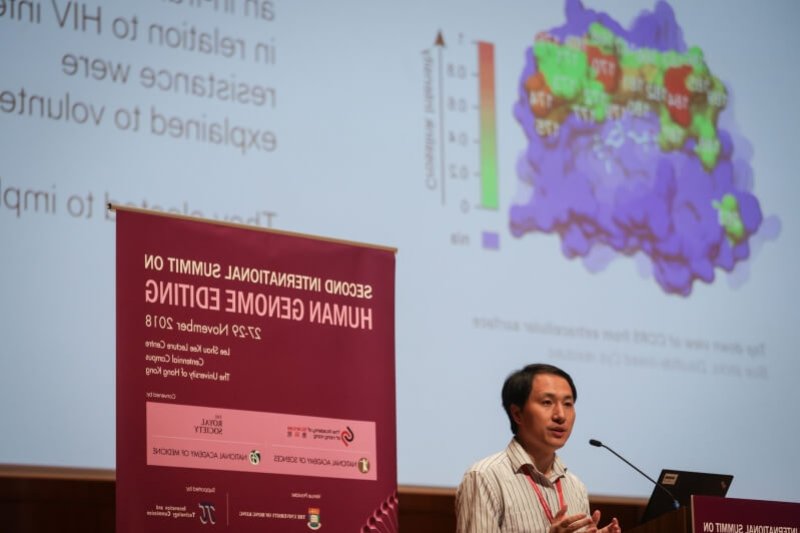On Nov. 26, U.S.-trained, Shenzhen-based He Jiankui announced that he’d altered the genes of a human embryo to create the first so-called designer baby, like something out of the movie Gattaca. Actually, two babies: twin girls from whom He said he’d deleted a gene that makes people susceptible to HIV.
…
It was a moment many bioethicists had feared was inevitable, particularly in the world’s most populous country. Chinese researchers have experimented prolifically with the Crispr gene-editing technique since its 2012 discovery, fueling concerns among Western scientists that they might blow past the consensus on how to do so safely and ethically. Many of the field’s leaders were predictably outraged. Jennifer Doudna, Crispr’s co-inventor, called He’s actions “truly unacceptable.”
Less expected was the reaction of the Chinese government. On Nov. 29, Xu Nanping, vice minister of science and technology, told state TV that authorities had halted work at He’s lab and planned “a comprehensive and objective investigation of the facts of the incident.” Vice Minister of Industry and Information Technology Huai Jinpeng said the government intended to take a “zero-tolerance attitude in dealing with dishonorable behavior” in research.
…
In a joint statement, a group of 122 Chinese researchers from institutions including the elite Peking and Fudan universities called his project “madness” and urged the government to toughen its rules further.
Read full, original post: China Shrinks From the Gattaca Age































